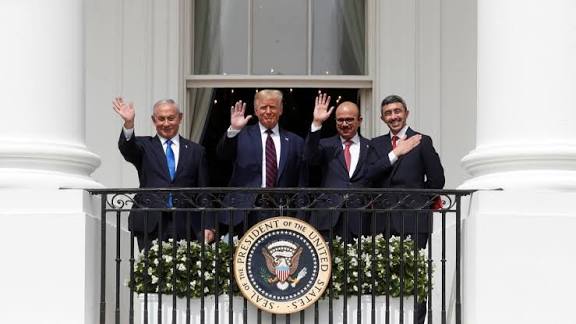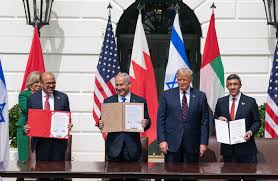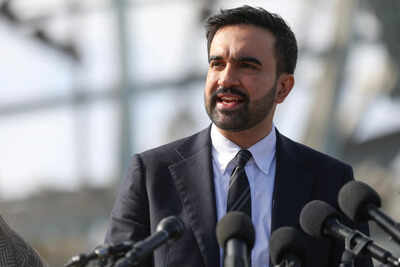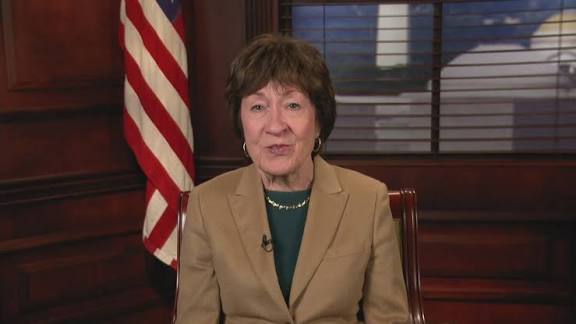Abraham Accords today news: Who is responsible for,Netanyahu vows,Countries

Benjamin Netanyahu has vowed to strengthen the Abraham Accords despite current regional tensions. Today we will discuss about Abraham Accords today news: Who is responsible for,Netanyahu vows,Countries
Abraham Accords today news: Who is responsible for,Netanyahu vows,Countries
The Abraham Accords, initiated in 2020, marked a transformative shift in Middle Eastern diplomacy. These agreements facilitated the normalization of diplomatic relations between Israel and several Arab nations, including the United Arab Emirates (UAE), Bahrain, Morocco, and Sudan. Brokered by the United States under President Donald Trump, the Accords were hailed as a historic step toward peace, cooperation, and regional stability.
The Genesis of the Abraham Accords

The Abraham Accords were officially signed on September 15, 2020, in Washington, D.C. The UAE and Bahrain became the first Arab nations to formalize diplomatic ties with Israel since Jordan’s 1994 peace treaty. Morocco and Sudan followed, though Sudan’s agreement faced delays in ratification. Named after the biblical figure Abraham, the Accords symbolized the shared heritage of Judaism, Christianity, and Islam, and reflected a desire to shift the region toward dialogue rather than conflict.
Who is Responsible for the Accords
While the Abraham Accords were brokered under the U.S. administration of Donald Trump, the responsibility for their implementation rests with multiple actors:
United States: Acted as mediator, providing diplomatic, logistical, and strategic support to bring the parties together.
Israel: Played a central role, particularly in advancing security and economic cooperation commitments with the signatory nations.
Arab Nations: UAE, Bahrain, Morocco, and Sudan made critical decisions to engage in formal normalization, balancing domestic public opinion and regional interests.
The initiative required careful negotiation, trust-building, and the alignment of strategic priorities across countries with decades of historical tensions.
Key Provisions of the Accords
The Abraham Accords established several core pillars to guide the new relationships:
Diplomatic Recognition: The signatory nations agreed to full diplomatic ties, including embassies, ambassadors, and formal channels for dialogue.
Economic Cooperation: The Accords opened doors for trade, investment, tourism, and joint technological projects.
Security Collaboration: Intelligence sharing and joint counterterrorism efforts became central to strengthening regional stability.
Cultural and Educational Exchanges: Promoting people-to-people engagement through educational programs, cultural exchanges, and tourism initiatives was a vital component.
Netanyahu’s Vows and Current Developments
Israeli Prime Minister Benjamin Netanyahu has repeatedly affirmed his commitment to expanding the Accords and ensuring security cooperation with Arab partners. Netanyahu’s recent statements emphasized disarmament of hostile groups in the region, increased economic collaboration, and the pursuit of broader peace initiatives. His government views the Accords not just as diplomatic achievements but as strategic tools to strengthen Israel’s regional influence and security.
Expansion and Future Prospects
There has been ongoing discussion about including additional Middle Eastern countries in the Abraham Accords. Saudi Arabia, Lebanon, and Syria are often mentioned in regional discussions, though formal agreements have not yet materialized as of 2025.
Saudi Arabia: Its participation would signal a major shift in regional diplomacy, given its leadership role in the Arab world.
Lebanon and Syria: Inclusion of these nations would be challenging, given political instability and existing conflicts, but remains a long-term goal for advocates of the Accords.
Expansion efforts also focus on economic and technological partnerships, aiming to make normalization mutually beneficial and sustainable.
Challenges and Criticisms
Despite their successes, the Abraham Accords face criticism and hurdles:
Palestinian Perspective: Many Palestinian leaders view the Accords as a departure from the traditional Arab stance, which conditions normalization with Israel on resolving the Palestinian conflict.
Public Opinion: In several Arab countries, the general populace remains skeptical or opposed to normalization with Israel.
Regional Tensions: Iran, in particular, perceives the Accords as a threat to its influence, leading to heightened regional rivalry.
Implementation Gaps: Not all proposed economic or security projects have been fully realized, and bureaucratic challenges slow some cooperative initiatives.
Impact on Regional Dynamics
The Abraham Accords have reshaped Middle Eastern geopolitics in several ways:
Realignment of Alliances: Countries that were previously adversaries are now cooperating on security, trade, and political matters.
Economic Opportunities: Normalization has unlocked significant trade, investment, and tourism potential, benefiting both Israel and partner nations.
Security Cooperation: Shared concerns over regional threats, especially from Iran and extremist groups, have fostered joint intelligence and defense strategies.
The Role of the United States
The United States continues to play a crucial supporting role in the Abraham Accords. Its involvement ranges from diplomatic backing to facilitating trade and security collaborations. The U.S. also encourages expansion of the Accords to additional nations, viewing the agreements as a strategic tool for stability and peace in the Middle East.
Conclusion
The Abraham Accords represent a historic reimagining of Middle Eastern diplomacy. They demonstrate that dialogue, negotiation, and mutual interests can overcome decades of entrenched hostility. While challenges persist, including Palestinian concerns, public skepticism, and regional rivalries, the Accords have established a foundation for ongoing cooperation. The commitment of leaders like Netanyahu and support from the United States, along with the willingness of Arab nations to engage in normalized relations, indicate that the Abraham Accords may continue to expand and reshape the region’s political and economic landscape in the years to come.
How useful was this post?
Click on a star to rate it!
Average rating 0 / 5. Vote count: 0
No votes so far! Be the first to rate this post.
About the Author
usa5911.com
Administrator
Hi, I’m Gurdeep Singh, a professional content writer from India with over 3 years of experience in the field. I specialize in covering U.S. politics, delivering timely and engaging content tailored specifically for an American audience. Along with my dedicated team, we track and report on all the latest political trends, news, and in-depth analysis shaping the United States today. Our goal is to provide clear, factual, and compelling content that keeps readers informed and engaged with the ever-changing political landscape.




